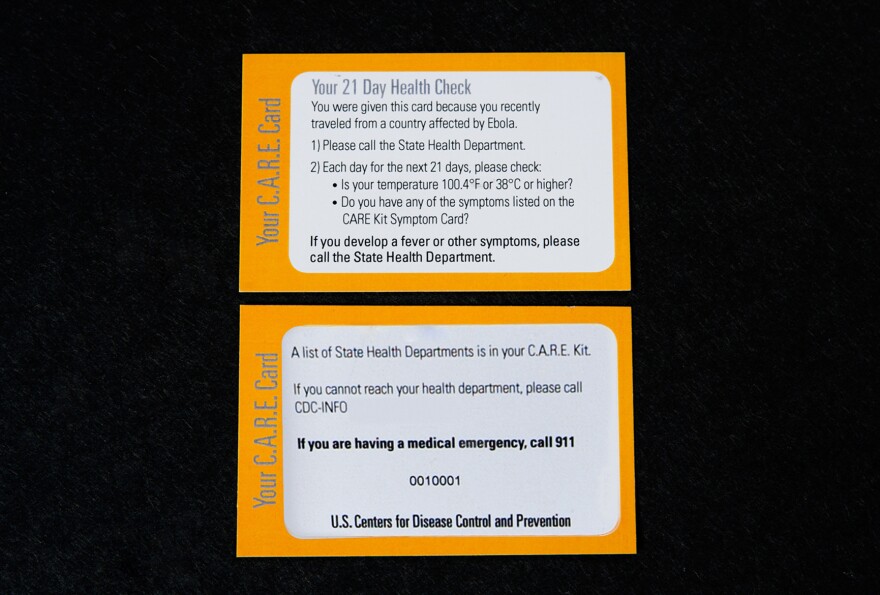Now that the United States is asking people arriving from West Africa to monitor their health in an effort to identify those infected with Ebola virus, the natural question is: How would I do that?
With your Ebola CARE Kit, of course.
On Thursday the Centers for Disease Control and Prevention unveiled the Check and Report Ebola Kit, which it will be handing out starting Monday to travelers from West Africa who arrive at U.S. airports. Think of it as a swag bag for epidemic time.
Though about 150 people arrive in the U.S. each day from these countries, the CDC says that at first they'll be monitoring people going to just six states — New York, Pennsylvania, Maryland, Virginia, New Jersey and Georgia. Those states account for about 70 percent of travelers from Liberia, Sierra Leone and Guinea end up. The goal is to eventually ramp up to include every state.

The packet includes a thermometer, because people will have to take their temperature twice a day. And they will have to call the health department daily to report those temperatures.
Those being monitored must also have to provide contact information so that they can be tracked down if they don't comply.
The packet includes illustrations of symptoms you don't want to have, including a fever of 100.4°F (38°C) or more, diarrhea, vomiting, headache and red eyes. And there's a tracking log to record symptoms and temperatures.
Wait, there's more! A wallet card makes it easy to know how to call your health department.
Once the 21 days have passed, the kit notes, "if you have no symptoms or fever, you are no longer at risk of Ebola."
"We hope you find this kit useful," the welcome letter that accompanies the kit says. "Please use it to keep yourself safe and help others around you to stay safe too. "Together, we can protect everyone from Ebola."
Copyright 2020 NPR. To see more, visit https://www.npr.org. 9(MDAxNDQ2NDAxMDEyNzU2NzM2ODA3ZGI1ZA001))



